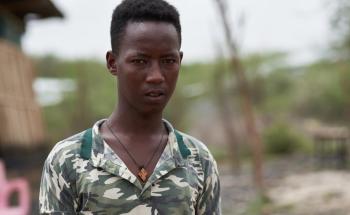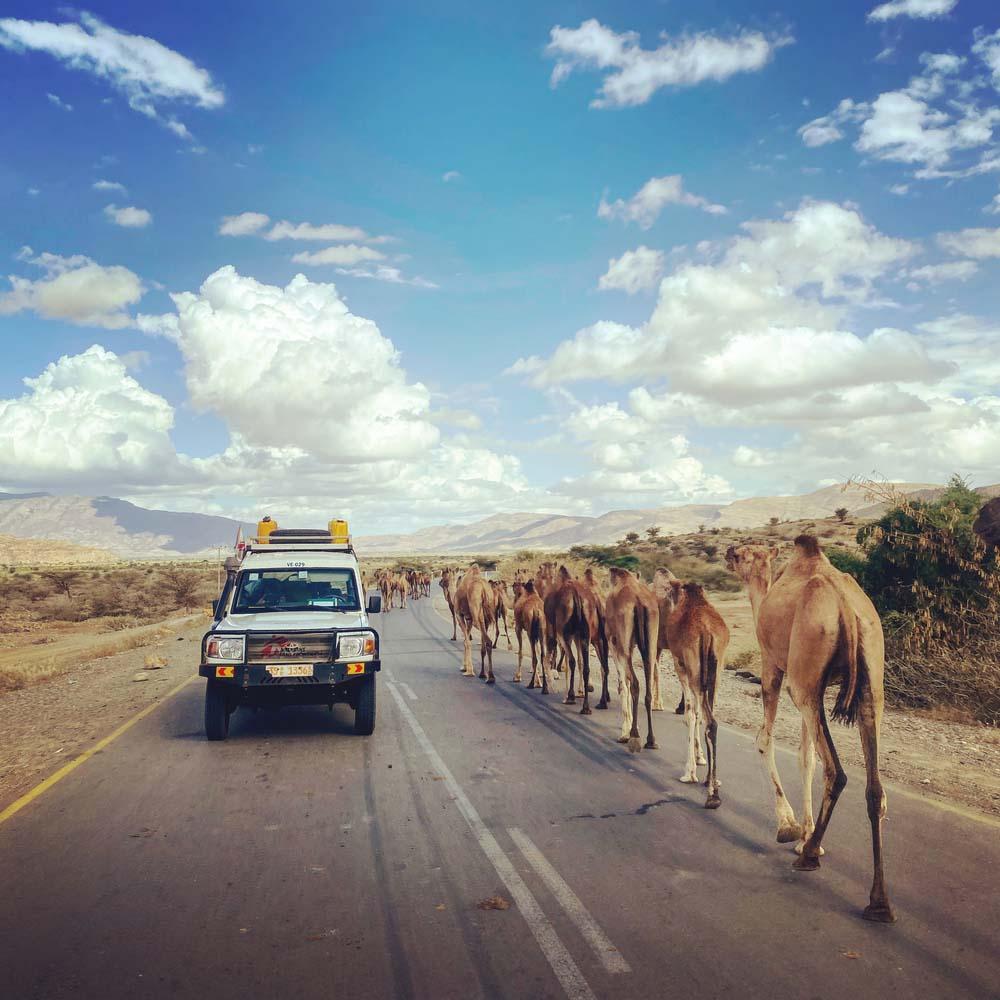
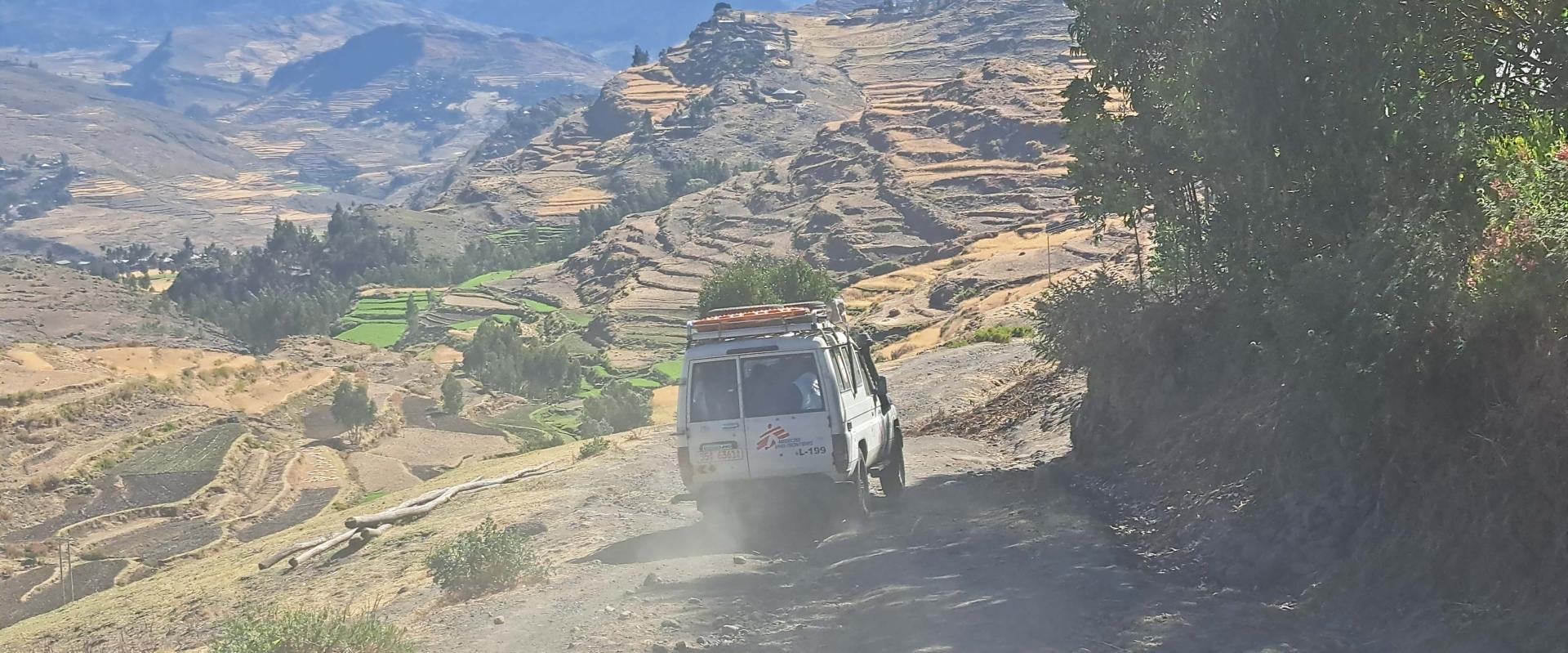
Ethiopia
We work in coordination with and in support of the Ethiopian Ministry of Health (MoH) and conduct independent evaluations to determine people’s needs.
In Gambella we provide basic healthcare for refugees from South Sudan and the host community, while in Wardher and across the Somali region, our emergency teams carry out disease surveillance, prevention and response activities for drought-affected communities.
In the northeast of the Afar region, our teams support Dupti Hospital by running a treatment facility for patients who need to be admitted for severe and complicated malnutrition. In nearby camps, we also run an outpatient malnutrition programme and provide water for displaced people.
In Southern Nations, Nationalities, and People's regions, MSF teams provide care through mobile clinics, epidemic response and occasional support to mass casualty situations.
In the Amhara region, we assist in responding to the increased needs in conflict-affected areas by donating medical supplies to health facilities and providing mobile clinics for basic healthcare in North and South Wollo. We also treat kala azar and snakebites and offer basic laboratory services in the region. Our team provides health education to patients, their caretakers, staff at Abdurafi Health Centre, and broader communities.
Our activities in 2023 in Ethiopia
Data and information from the International Activity Report 2023.
1,320
1,32
€41.4 M
41.4M
1984
1984
Featured
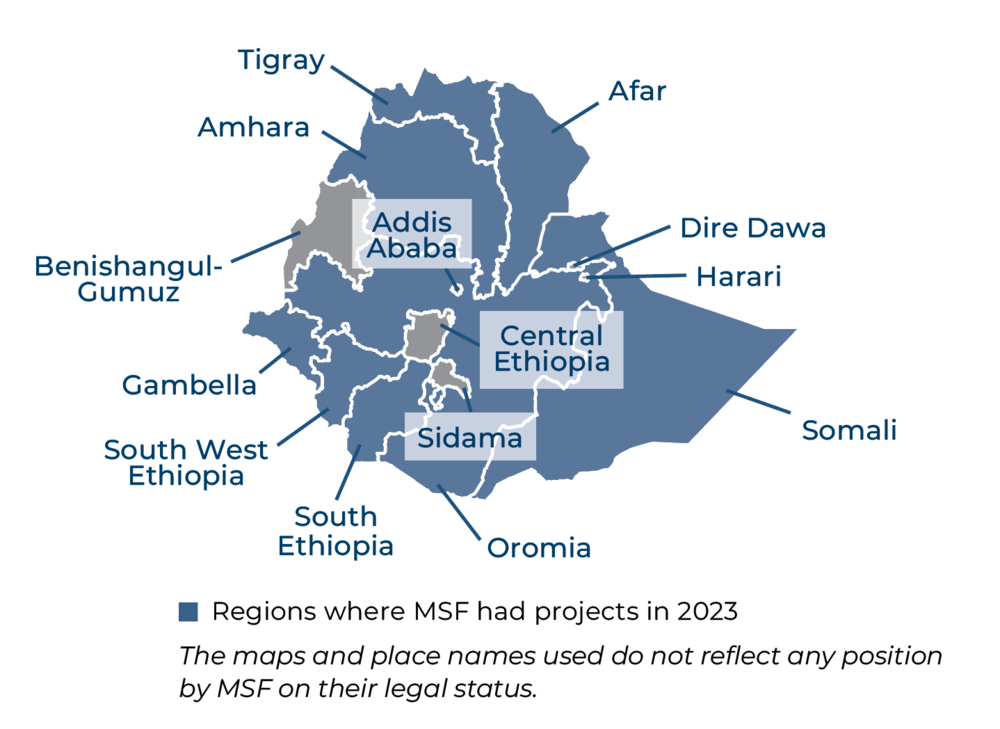
In 2023, we delivered vital support in 10 regions of Ethiopia. However, insecurity and administrative barriers complicated humanitarian access in many parts of the country, affecting more than 20 million people in need of assistance*.
In Gambella, we provided general and specialised health services, focusing on improving the quality of care for refugees from neighbouring South Sudan and the wider community. We also responded to a measles outbreak in the region, providing treatment and supporting a Ministry of Health vaccination campaign.
In Somali region, we carried out emergency activities to address high levels of malnutrition and outbreaks of vaccine-preventable diseases, such as measles and cholera, and offered assistance to displaced people.
In Afar, we ran a treatment centre for patients with severe and complicated malnutrition, and supported the paediatric department of Dupti hospital. We also responded to a cholera outbreak in the region.
In South Ethiopia and Southwest Ethiopia Peoples’ regions, we ran mobile clinics and provided care for malaria, measles, and kala-azar (visceral leishmaniasis), a neglected tropical disease for which there is insufficient treatment due to a lack of profitability.
In Amhara, where conflict is driving a surge in needs, we donated medical supplies and offered treatment for snakebites and kala-azar. In addition, we responded to a cholera outbreak in a camp hosting Sudanese refugees by providing water and sanitation.
In Tigray, we provided paediatric, maternal, and malnutrition care, mental health support, and treatment for sexual and gender-based violence. We also sent mobile clinics to hard-to-reach areas and repaired 600 water pumps in the region to ensure access to clean water.
In Oromia, we responded to a cholera outbreak and donated medical supplies.
Calling for accountability for the death of our colleagues
On 24 June 2021, our colleagues María Hernández Matas, Tedros Gebremariam Gebremichael and Yohannes Halefom Reda were brutally and intentionally killed while clearly identified as humanitarian workers in Tigray. After extensive engagement with the Ethiopian authorities, we still do not have any credible answers regarding what happened to our colleagues. MSF will keep pursuing accountability for this incident, with the hope that this will help improve the safety of humanitarian workers in Ethiopia.
*OCHA: Ethiopia – Situation Report, 1 Feb 2024:
https://www.unocha.org/publications/report/ethiopia/ethiopia-situation-report-1-feb-2024
IN 2022

413,100
413,1
64,300
64,3
11,300
11,3
2,990
2,99

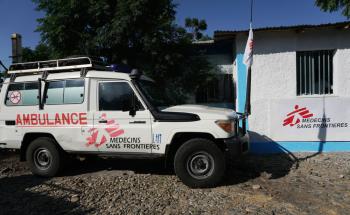
Psychological support for MSF staff on the border with Tigray, Ethiopia
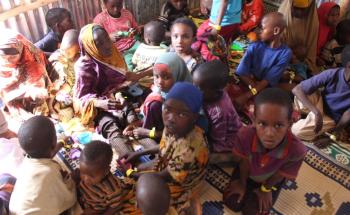
Mental Health: “This is a new and strange place – adjusting to it can be difficult”
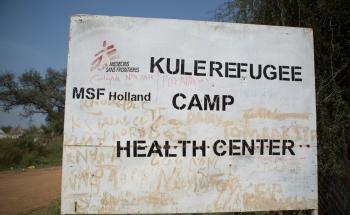
Christine Tasnier: Hope To Return
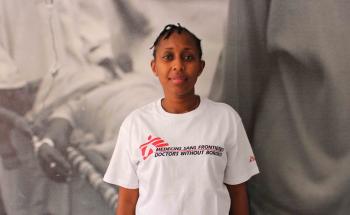
When a ‘thank you’ is the highlight of your profession
